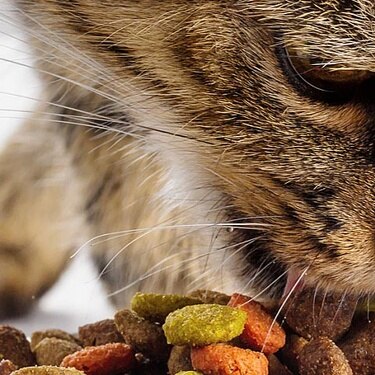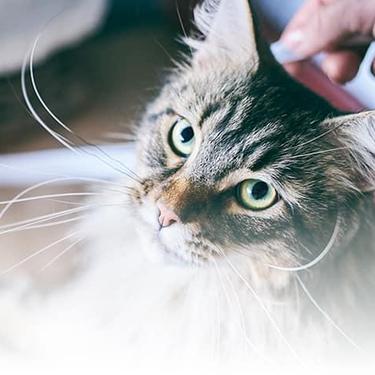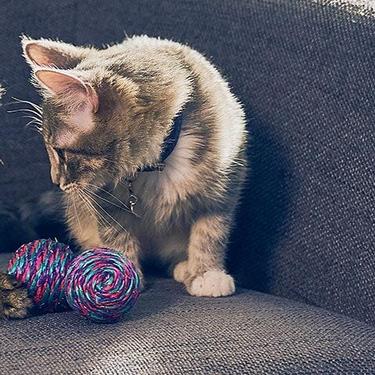
-
Find the right food for your petTake this quiz to see which food may be the best for your furry friend.Find the right food for your petTake this quiz to see which food may be the best for your furry friend.Featured products
 Puppy Food
Puppy FoodHill's Science Plan Puppy Multipack Wet Dog Food with Chicken & Beef are complete premium pet foods for growing puppies from weaning until 1 year old and for pregnant and nursing dogs. Your puppy will love these deliciously smooth and savoury minced loaves, formulated for balanced nutrition and overall health.
Shop Now Adult Wet Dog Food with Beef
Adult Wet Dog Food with BeefHill's Science Plan Adult Multipack Wet Dog Food with Chicken, Beef & Turkey are complete premium pet foods for adult dogs from 1 year. Your dog will love these deliciously smooth and savoury minced loaves, formulated for balanced nutrition and overall health.
Shop Now Mature Adult Dog Food
Mature Adult Dog FoodHill's Science Plan Mature Adult Multipack Wet Dog Food with Chicken & Beef are complete premium pet foods for mature adult dogs from 7 years. Your dog will love these deliciously smooth and savoury minced loaves, formulated to deliver the appropriate amount of energy to support the needs of adult dogs.
Shop NowFeatured products Light Adult Multipack Wet Cat Food with Chicken & Ocean Fish
Light Adult Multipack Wet Cat Food with Chicken & Ocean FishTender chicken chunks in gravy for cats, with L-carnitine and fewer calories for ideal weight management. Packed with high-quality protein, omega-6s, and vitamin E for shiny fur and healthy skin.
Shop Now Adult Multipack Wet Cat Food with Beef, Ocean Fish & Chicken
Adult Multipack Wet Cat Food with Beef, Ocean Fish & ChickenTender chunks in gravy for cats, with high-quality protein to maintain lean muscle. With vitamin E and omega-3s & -6s for healthy skin and balanced minerals to support healthy vital organs.
Shop Now Mature Adult Wet Cat Food with Chicken
Mature Adult Wet Cat Food with Chicken
Tender chicken chunks in gravy for mature adult cats. Made with easy-to-digest ingredients, high-quality protein for lean muscle maintenance and antioxidant vitamins C+E for optimal health.
Shop Now -
Dog
- Dog Tips & Articles
-
Health Category
- Weight
- Food & Environmental Sensitivities
- Urinary
- Digestive
- Joint
- Kidney
-
Life Stage
- Puppy Nutrition
- Adult Nutrition
- Senior Nutrition
Cat- Cat Tips & Articles
-
Health Category
- Weight
- Skin & Food Sensitivities
- Urinary
- Digestive
- Kidney
-
Life Stage
- Kitten Nutrition
- Adult Nutrition
Featured articles The Incredible Science Behind Your Pet's Microbiome
The Incredible Science Behind Your Pet's MicrobiomeLearn what your pet's microbiome is, how it contributes to your pet's gut and overall health, and why nutrition is important in maintaining healthy microbiomes.
Read More Show some love with wet foods: a great choice for pets with health issues
Show some love with wet foods: a great choice for pets with health issuesShow some love with wet foods: a great choice for pets with health issues.
Read More The Right Diet For Your Pet
The Right Diet For Your PetIn people, the right diet is very important. If you are eating the wrong way for your metabolism, activity level, age and lifestyle you could end up with health issues.
Read More -


Is your cat vomiting? Have you noticed a change in colour or consistency of their poop? Sickness and diarrhoea are pretty common in pets and can be caused by lots of things. Often it’s nothing to worry about - they might have eaten something unsavoury or picked up a bug like we do. Although most cases settle on their own we do need to be careful because sometimes it may be a sign of a more worrying condition. Vomiting especially can cause rapid dehydration. Here are some pointers to help you decide if your pet’s sickness or diarrhoea needs veterinary attention.
Taking Action
The first step, if your cat is vomiting, is to stop feeding and make sure there is plenty of fresh water available. If your cat continues to vomit for more than 8 hours or is vomiting very frequently, seek veterinary advice. There’s usually no need to withhold food if your cat has diarrhoea. Self-limiting diarrhoea should normally settle in 2-3 days. However, there are some circumstances where you should not wait for 24 hours before talking to your vet, if your cat is being sick.


Tasty Tips
Call your vet if…
- Your cat is very young or very old (as they can become dehydrated very quickly)
- Your cat has an existing health condition, such as diabetes
- Your cat already takes medication. Ask for advice about whether it can or should be stopped while your pet is being sick
- You see blood in vomit or diarrhoea or if black tarry looking material is being passed
- Your cat looks very miserable, becomes depressed or the gums feel dry and tacky
- After 24 hours, if your cat’s tummy appears to settle and you need advice about what to feed next, talk to your vet. Vets will often recommend a specially formulated food such as Hill's Prescription Diet i/d, rather than an immediate return to your cat’s normal food.
One last word of advice – call your vet before taking your sick cat to the practice. They may ask you to wait in a different waiting area if they suspect your cat could be infectious to other patients.
Reviewed by Dr. Emma Milne BVSc FRCVS


One of our staff authors prepared this article for you
Related products

Tender chunks in gravy for cats, with high-quality protein to maintain lean muscle. With vitamin E and omega-3s & -6s for healthy skin and balanced minerals to support healthy vital organs.

Tender chicken chunks in gravy for cats, with L-carnitine and fewer calories for ideal weight management. Packed with high-quality protein, omega-6s, and vitamin E for shiny fur and healthy skin.

Tender chicken chunks in gravy for mature adult cats. Made with easy-to-digest ingredients, high-quality protein for lean muscle maintenance and antioxidant vitamins C+E for optimal health.

Related articles

From essential vitamins & minerals to different types of meat, learn what to look for when choosing the best cat food for your feline.

Learn how to make homemade cat treats that are healthy for your pet with this recipe from Hills Pet Nutrition.

There are three common ways to feed a cat. Each way has its advantages and disadvantages.

Kittens grow a lot in their first year, so it is important to provide them with the proper nutrients early, so they grow up healthy and strong. Learn more.

Put your cat on a diet without them knowing
Our low calorie formula helps you control your cat's weight. It's packed with high-quality protein for building lean muscles, and made with purposeful ingredients for a flavourful, nutritious meal. Clinically proven antioxidants, Vitamin C+E, help promote a healthy immune system.
Put your cat on a diet without them knowing
Our low calorie formula helps you control your cat's weight. It's packed with high-quality protein for building lean muscles, and made with purposeful ingredients for a flavourful, nutritious meal. Clinically proven antioxidants, Vitamin C+E, help promote a healthy immune system.

